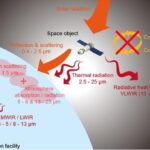
Lipid Metabolic Reprogramming and the Tumor Immune Microenvironment: Unveiling New Frontiers for Early Cancer Diagnosis and Prevention
In recent years, the dynamic interplay between lipid metabolism and tumor biology has emerged as a pivotal focus in cancer research. Tumor cells are not mere passengers but active architects of their metabolic landscape, rewiring lipid pathways to sustain rapid proliferation and evade immune surveillance. This metabolic reprogramming extends far beyond simple energy storage; it integrates complex signaling networks that shape the tumor microenvironment, dictating cancer progression and therapeutic resistance.
At the cellular level, lipids serve fundamental roles as building blocks of membranes, signaling molecules, and energy reservoirs. Tumor cells exploit these lipids, notably fatty acids, cholesterol, and lipid droplets, to fuel aberrant growth and metastasis. Enzymatic systems such as ATP citrate lyase and acyl-CoA synthetase are upregulated to enable enhanced de novo fatty acid synthesis. Concurrently, fatty acid oxidation (FAO) facilitates invasive behaviors, while the saturation levels of fatty acids modulate membrane fluidity and receptor-mediated signal transduction, reinforcing tumor resilience.
Cholesterol metabolism also undergoes substantial alterations in cancerous tissues. Elevated activity of cholesterol esterification enzymes, particularly acyl-CoA:cholesterol acyltransferase (ACAT), leads to the accumulation of lipid droplets that serve as storage depots within tumor cells. These lipid reservoirs support membrane biosynthesis and act as reservoirs for signaling lipids, directly influencing oncogenic pathways regulated by transcription factors such as SREBP2, and signaling cascades including Hedgehog and Notch. This lipid storage mechanism is increasingly recognized as a key contributor to tumor aggressiveness.
Lipid droplets, far from being passive entities, are dynamically regulated organelles critical for maintaining lipid homeostasis in cancer cells. Proteins like PLIN2 coat these droplets, while transcription factors such as FOXO3 govern their metabolism. Dysregulated lipophagy and lipolysis not only mobilize lipid stores but also generate reactive oxygen species (ROS), which paradoxically can promote tumor survival by activating adaptive stress responses. This paradox underscores the intricate balancing act cancer cells perform to thrive under hostile conditions.
The influence of lipid metabolism extends into the tumor immune microenvironment (TIME), where it fundamentally affects immune cell function and fate. Tumor cells create a metabolically hostile milieu characterized by nutrient competition and oxidative stress, which hampers the efficacy of antitumor immune cells and fosters immunosuppression. This metabolic crosstalk is especially evident in various immune subsets, including T cells, dendritic cells, myeloid-derived suppressor cells (MDSCs), natural killer (NK) cells, and macrophages.
T cells, pivotal effectors of adaptive immunity, undergo metabolic adaptations within the tumor niche. Regulatory T cells (Tregs) preferentially utilize FAO and oxidative phosphorylation (OXPHOS) to meet their energetic needs, facilitating their suppressive roles. In contrast, effector T cells depend largely on glycolytic metabolism, rendering them vulnerable to nutrient deprivation and ROS-induced dysfunction. These metabolic constraints significantly impair effective tumor eradication.
Dendritic cells (DCs), essential for antigen presentation and T cell priming, are also hindered by aberrant lipid accumulation in the tumor microenvironment. Lipid overload disrupts their antigen-processing capacity, suppressing their activation. Interestingly, pharmacological inhibition of FAO in DCs has been shown to restore their immunostimulatory functions, suggesting therapeutic avenues targeting cholesterol and fatty acid metabolism to reverse immune tolerance and potentiate immunotherapy.
MDSCs, notorious for their immunosuppressive capacity, rely on lipid metabolic pathways to sustain their function. Specifically, FAO and arachidonic acid metabolism mediated by fatty acid transporter protein 2 (FATP-2) bolster their ability to inhibit T cell responses. Targeting these pathways suppresses MDSC activity, reawakening antitumor immunity and delaying tumor progression—an insight that opens new doors for combinatorial cancer therapies.
Natural killer (NK) cells require balanced lipid metabolism for optimal cytotoxic function, with the mechanistic target of rapamycin (mTOR) pathway acting as a key regulator. Macrophages within the tumor environment demonstrate polarization into distinct phenotypes. M1 macrophages possess pro-inflammatory and tumoricidal properties, whereas M2-like tumor-associated macrophages (TAMs) utilize FAO and secrete immunosuppressive cytokines such as interleukin-10 (IL-10) and transforming growth factor-beta (TGF-β) that facilitate tumor growth and immune evasion.
The identification of lipid metabolism-associated molecules as biomarkers is gaining traction in cancer diagnostics. Enzymes like fatty acid synthase (FASN), transporters such as FATP, bioactive lipids including ceramides, oxysterols, and lysophosphatidylcholine (LPC) exhibit correlative expression with tumor progression and immune modulation. Their detection in biological fluids represents a promising strategy for early cancer detection, prognosis, and therapeutic guidance.
From a preventive perspective, alterations in lipid metabolites can herald the incipient stages of oncogenesis. Non-invasive monitoring of these metabolites in blood or tissue harbors immense potential for early screening initiatives. Modulating lipid metabolism, whether by inhibiting fatty acid synthesis pathways or amplifying fatty acid oxidation, offers a prospective avenue for interrupting tumor initiation before malignant transformation manifests clinically.
Immunotherapy, a transformative paradigm in cancer treatment, benefits markedly from integration with lipid-targeted strategies. Inhibitors of lipid uptake molecules like CD36 alleviate immunosuppression by reducing lipid overload in immune cells. Furthermore, lipid-based drug delivery systems, exemplified by liposomes, enhance the precision and efficacy of chemotherapeutic and immunomodulatory agents. Advances in understanding ferroptosis, an iron-dependent form of cell death driven by lipid peroxidation, provide a novel mechanistic target that exploits cancer cells’ metabolic vulnerabilities.
Looking ahead, the clinical translation of these insights hinges on several critical fronts. The refinement of lipid metabolism biomarkers for routine diagnostic use promises to revolutionize early cancer detection paradigms. Concurrently, optimizing lipid-centric drug delivery platforms will enhance therapeutic index and patient outcomes. Integrating immunometabolism within personalized oncology frameworks holds the key to tailoring combinatorial approaches that harness both metabolic modulation and immune activation for superior efficacy.
In summary, lipid metabolism is no longer merely a supporting player but rather a central orchestrator in the complex narrative of tumorigenesis and immune regulation. Its reprogramming empowers cancer cells with survival advantages while sculpting an immunosuppressive microenvironment. Targeting these lipid pathways offers a transformative strategy that bridges early diagnosis, effective prevention, and cutting-edge immunotherapy, heralding a new era in cancer management. Continued rigorous research into these metabolic intricacies will undoubtedly propel the development of next-generation interventions poised to curtail the global cancer burden.
Subject of Research: Lipid metabolism and its role in tumor biology and immune microenvironment with implications for early cancer diagnosis and prevention.
Article Title: Lipid Metabolic Reprogramming and the Tumor Immune Microenvironment: A New Strategy for Early Diagnosis and Cancer Prevention
News Publication Date: 30-Mar-2025
Web References:
https://www.xiahepublishing.com/journal/csp
http://dx.doi.org/10.14218/CSP.2025.00002
Image Credits: Ruihua Shi, Xiaoshuang Liu, Jihua Ren
Keywords: Lipid metabolism, Cancer screening, Immunotherapy, Tumor immune microenvironment, Fatty acid oxidation, Cholesterol metabolism, Lipid droplets, Ferroptosis
Tags: cancer diagnosis and preventioncholesterol metabolism in cancerenzymatic systems in lipid metabolismfatty acid synthesis in tumorslipid droplets and tumor growthlipid metabolic reprogramminglipid metabolism in cancermetabolic pathways in cancersignaling networks in tumor biologytherapeutic resistance in cancertumor cell proliferation and immunitytumor immune microenvironment



